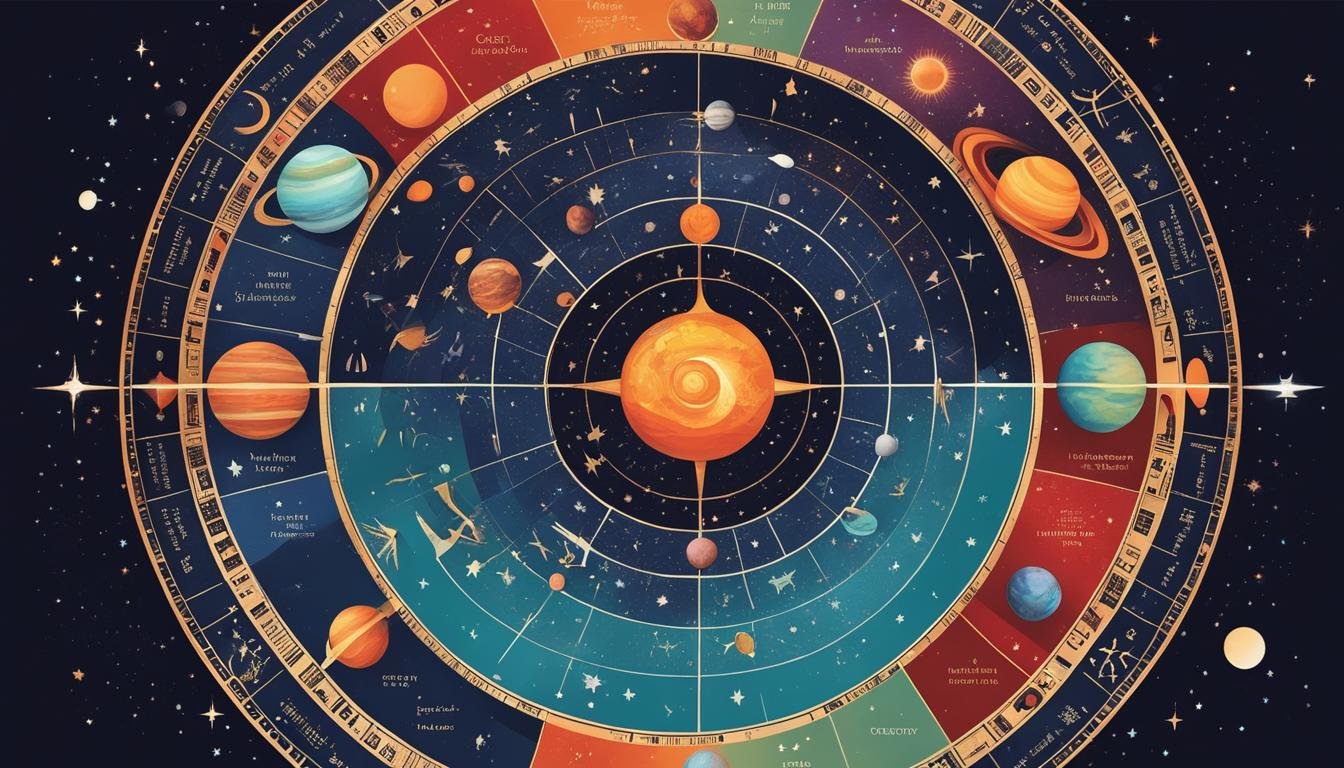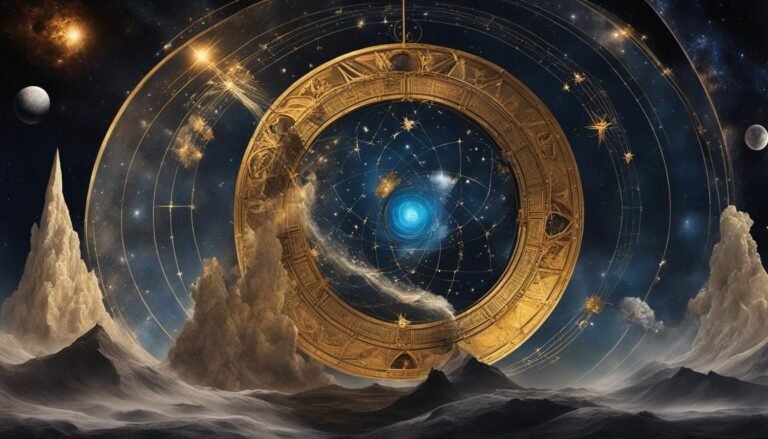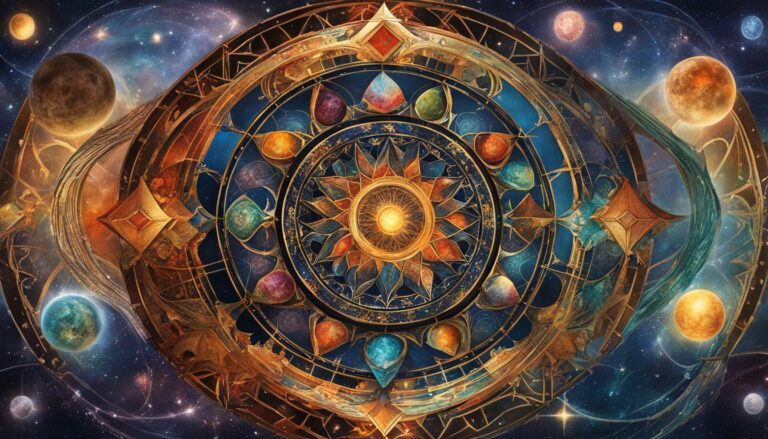What Are Placements In Astrology?
Ever looked up at the night sky and felt as though the stars held secrets to your innermost self? That’s not a mere daydream; it’s the foundation of astrology. In the intricate world of astrology, one of the most compelling features to explore is astrological placements. These placements are essentially the cosmic coordinates of planets within the zodiac signs and houses at the time of your birth. They create what’s known as an astrology birth chart or natal chart—a celestial snapshot that captures the potential and personality quirks designated to you by the universe itself. These detailed astrology placement meanings reveal your emotional makeup, distinctive traits, life’s narrative, and destinies unfolding according to the silent music of the celestial dance.
Imagine this chart as a personalized cosmic map, crafted uniquely for you based on where and when you first entered the world. The specific locations and interactions of celestial bodies such as the Sun, Moon, and planets provide rich insights into various facets of your existence—guiding, supporting, and sometimes challenging you throughout your life’s journey.
Key Takeaways
- Astrological placements pinpoint the positions of planets and celestial bodies in your unique birth chart.
- Understanding what are placements in astrology can unlock insights into your personality and potential.
- Your natal chart is a cosmological blueprint created using your birth time, date, and place.
- Each celestial body within the chart influences different aspects such as love, career, and personality.
- Recognizing and interpreting these placements can guide personal growth and self-awareness.
- Astrology placement meanings go beyond mere sun sign horoscopes, offering a more nuanced view of astrological influence.
Exploring the Roots of Astrological Placements
The significance of placements in astrology is deeply rooted in the practices of ancient cultures, with civilizations from the Babylonians to the Greeks and beyond charting the stars to unlock the mysteries of human existence. These societies were the pioneers in observing the heavens, cultivating a symbiotic relationship between the cosmos and the life events of the everyday person. The legacy they’ve left behind has evolved, inspiring modern platforms that have made analyzing placements in astrology accessible to all.
Today, you have the power to dive into your celestial makeup with the click of a button, thanks to apps like Co-Star and The Pattern. These sophisticated tools distill ancient wisdom into user-friendly interfaces, offering personalized readings that once required a visit to an astrological sage. The technology paves the way for a contemporary exploration of how planetary positions affect personal attributes and experiences.
- Reflect on the connectivity between astrology and human culture, spanning millennia.
- Consider how technological advancements have democratized the field of astrology.
- Explore the personal relevance of astrological insights in the context of historical significance.
As you begin your own journey into the world of astrology, remember that you’re engaging with a tradition as old as civilization itself, interpreting celestial patterns that have guided countless generations.
Navigating Your Birth Chart: Understanding the Basics
Diving into the celestial framework of your existence, you might wonder about the impact of each astral body in your astrology birth chart. Such cosmic insight is crucial – it reveals the core of your identity and the uniqueness of your personal journey. While deciphering the roles of the Sun, Moon, and Rising signs, along with other planetary placements, remember their significances are as pivotal as their positions in the great celestial tapestry.
The Significance of the Sun, Moon, and Rising Signs
Undoubtedly, interpreting astrological placements starts with the ‘Big Three’. The Sun sign illustrates the essence of your character, essentially who you are at your core. It’s the straightforward answer to, “What’s your zodiac sign?” The Moon sign, on the other hand, unveils the labyrinth of your inner emotions, often hidden from the public eye. And then there’s the Rising sign, or Ascendant: the front you put up for the world, influencing first impressions and initial reactions.
Identifying Your Astrology Birth Chart Placements
Moving beyond your central astrological triumvirate, the significance of other celestial bodies comes into focus. With Mercury ruling communication, Venus dictating love and appreciation, and Mars steering your assertive energies, understanding these planetary positions is essential. Each planet’s placement crafts another layer of your persona and influences various facets of your life, from how you express love to your most instinctual reactions.
Applications and Tools to Discover Your Birth Chart
In contemporary times, discovering the unique makeup of your astrology birth chart has been vastly simplified. Applications like Co-Star have emerged, providing easy-to-understand interpretations and mapping celestial alignments based on your personal data. These digital astrologers need nothing more than the exact time, date, and place of your birth to unfurl the importance of astrological placements in detail.
- The importance of astrological placements is apparent as they are the keys to unlocking self-awareness and personal growth.
- Through astrology birth chart placements, we gain deeper insights into our character, empowering us to navigate life’s complexities with greater understanding.
- In the realm of interpreting astrological placements, attentiveness to the intricate details of your chart can reveal profound life patterns and tendencies.
Understanding Placements in Astrology
Embarking on the journey of understanding placements in astrology, it’s essential to recognize the influence of each celestial body on your life. Your birth chart, a cosmic passport of sorts, is filled with astrology planet placements that shape your very essence. From your emotional core to your communication style, each planet’s position offers a unique thread in the complex tapestry of your identity.
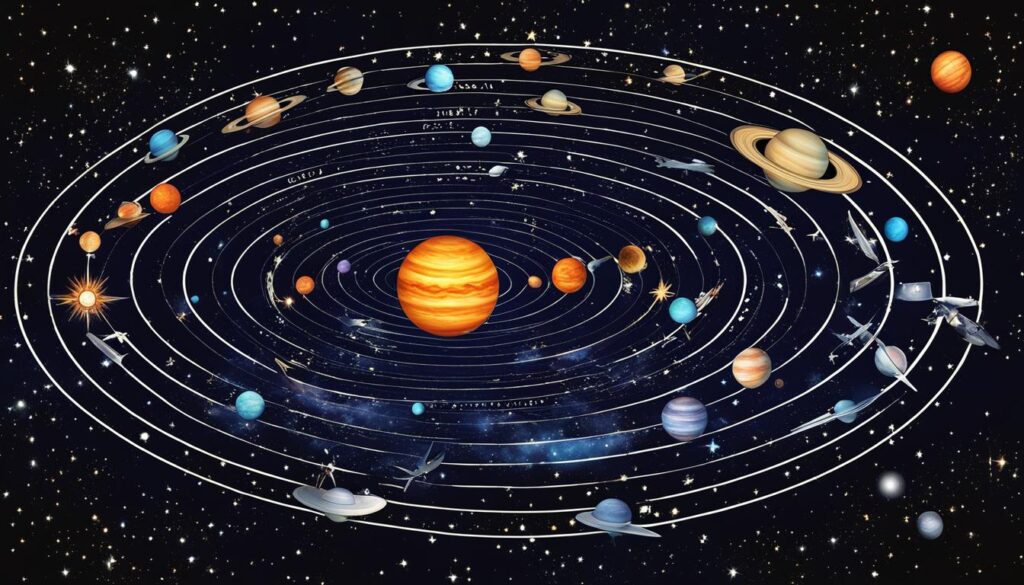
The Sun, the Moon, and the planets travel through the zodiac signs, and where they land at the time of your birth profoundly affects various aspects of your personality and fate. Consider the Sun, which underscores your life purpose and ego; the Moon, illuminating your inner emotional landscape; or Mercury, influencing how you think and convey your thoughts. These placements are like individual notes in a grand symphony, each one resonating with a particular part of who you are.
- Mercury: Governs your communication skills and intellectual leanings.
- Venus: Determines what you value in love and how you relate to others.
- Mars: Drives your ambitions and dictates your approach to conflict and desire.
By analyzing placements in astrology, you unlock the doors to self-discovery, peeling back layers to reveal why you act, feel, and think the way you do. You are not just your Sun sign, and your birth chart is the roadmap to the cosmos’ influence over your life. Embrace the voyage to unraveling the mysteries of your astrological placements, and watch the stars align to illuminate your unique path.
Decoding the Big Three: Sun, Moon, and Ascendant
Unraveling the importance of astrological placements is akin to decoding a secret language of the self. Within this celestial dialogue, three voices speak the loudest: the Sun, Moon, and Ascendant signs. Understanding these can offer profound insights into your personal makeup and how you navigate the world around you.
The Sun Sign and Personal Identity
The Sun sign sheds light on who you are at your core, driving your will to exist and shaping your individuality. When pondering the astrology placement meanings, it’s easy to see why the Sun’s position at birth is critical. It dictates your ego, life force, and the vibrant part of you that you’re eager to share with the world.
The Role of the Moon Sign in Emotional Expression
Your Moon sign is the whispered intimacies of your soul, directing the internal currents of emotions and instincts. As it waxes and wanes through the zodiac, it orchestrates the dance of your mood and feelings, making it an astrological placement of paramount importance for understanding your innermost self.
How Your Ascendant Determines First Impressions
As the mask you don to meet the external world, your Ascendant sign, or rising sign, is the stylist of your first impressions. Glimpsing the exact moment of your arrival, it dictates the energy you project and the initial image others form of you. With its accuracy hinging on the precision of your birth time, it’s a critical point in astrology placement meanings.
The Impact of Mercury, Venus, and Mars on Communication and Relationships
Delving into the cosmos, you’ll find that analyzing placements in astrology offers a richer understanding of the intricacies within your personal interactions. The planets Mercury, Venus, and Mars are particularly influential in shaping the ways in which you engage and connect with others.
- Mercury: This planet is the messenger, influencing how you communicate. Are your conversations flowing or fraught with miscommunication? Understanding Mercury’s placement might just be your key to clearer dialogues.
- Venus: Venus is all about connection, dictating how you give and receive love. By analyzing its placement, you can uncover the secrets to your affections and attractions, and perhaps even improve your most treasured relationships.
- Mars: The fiery Mars governs drive and desire. It’s the force behind your assertiveness and, at times, your frustrations. Observing where Mars falls in your birth chart can reveal your gut reactions and how you assert your will.
When you’re understanding placements in astrology, you’re not just learning about yourself in isolation. You’re gaining valuable insights into how you mesh with the world around you—especially in the realms of personal and professional relationships.
Mastering these celestial insights doesn’t require a telescope or a degree in astrophysics—just an open mind and the desire to explore deeper dimensions of your personality. As you navigate relationships, knowing which planetary forces are at play can make all the difference in creating harmony and mutual understanding.
Jupiter to Pluto: Unveiling Growth, Ambition, and Transformation
Understanding the role of each planet in astrology is vital, as they collectively shape the tapestry of your life. In examining the outer planets and their significance, you delve into the profound depths of your astrological chart, uncovering the potent forces that drive personal growth and collective change. Here, we explore the influence of the key astrological placements from Jupiter to Pluto and how they contribute to the unfolding narrative of your existence.
Jupiter’s Influence on Personal Expansion
When you think about the paths untaken and opportunities for growth, Jupiter’s placement in your astrological chart points the way. Symbolizing luck, prosperity, and the pursuit of knowledge, Jupiter’s presence encourages you to broaden your horizons. It’s where you’ll find insights into your quest for meaning, how you approach learning, and the way you seek to enrich your life both materially and spiritually.
Saturn’s Role in Discipline and Achievement
Saturn is the taskmaster of the planets—the stern teacher who guides you through life’s toughest lessons. Its placement in your chart signifies the structures you build: your ambition, your persistence, and your capacity for hard work. Saturn demands responsibility, urging you toward self-mastery and the achievement of your long-term aspirations.
Transpersonal Planets: Neptune, Uranus, and Pluto in Depth
The transpersonal planets—Neptune, Uranus, and Pluto—forge connections between your individual experience and broader societal currents. These placements reflect your potential for radical change, spiritual awakening, and rebirth. Here lies the importance of astrological placements in highlighting areas of life where you may experience upheaval, inspiration, and transcendence, leading to profound personal and collective transformation.
By appreciating the astrology placement meanings of these outer planets, you gain a clearer perspective of your potential and challenges. Recognizing their cycles and influence within your life can aid in navigating the complexities of personal evolution with greater awareness. Indeed, the placement of each planet serves as a cosmic compass, guiding your journey through life’s vast sea of possibilities.
Unraveling the Elements and Modalities in Astrological Placements
The significance of placements in astrology cannot be emphasized enough when it comes to personal discovery and understanding your unique cosmic fingerprint. Just as a painter blends primary colors to create a masterpiece, astrology uses elements and modalities to add vibrancy and texture to your astrological profile. Let’s explore these critical components that give depth to the zodiac signs and enrich the tapestry of your personal astrology.
The four elements—fire, earth, air, and water—are fundamental to the structure of the zodiac. They represent the energy essence that courses through each sign. Here’s a snapshot:
- Fire signs (Aries, Leo, Sagittarius) are spirited and energetic, igniting enthusiasm and creativity.
- Earth signs (Taurus, Virgo, Capricorn) embody practicality and stability, offering a grounded approach to life.
- Air signs (Gemini, Libra, Aquarius) engage with intellect and communication, sharing the breath of ideas.
- Water signs (Cancer, Scorpio, Pisces) navigate the emotional realms, providing intuition and sensitivity.
Connecting with your element can help you understand your innate responses and attitudes toward life’s situations. The harmony or discord you feel within your environment may quite literally be a product of your elemental nature.
Now, let’s turn to the modalities in astrology, which are classified as cardinal, fixed, and mutable. These modalities highlight the method in which zodiac signs engage with the world:
- Cardinal signs (Aries, Cancer, Libra, Capricorn) are initiators, ready to start new projects and lead the way.
- Fixed signs (Taurus, Leo, Scorpio, Aquarius) are the sustainers, maintaining focus and seeing things through to completion.
- Mutable signs (Gemini, Virgo, Sagittarius, Pisces) are the adapters, flexible and versatile in the face of change.
Your modality shapes how you approach goals, challenges, and changes. Do you spearhead change, resist it, or flow with it? Reflecting on your modality can reveal your style of taking action and dealing with transformation in your life.
When considering the significance of placements in astrology, integrating the knowledge of your element and modality can provide a richer understanding of your inherent nature and the strategies you naturally adopt. They are cornerstones that, when embraced, can lead to greater self-awareness and empowerment.
Interpreting Astrological Aspects and Degrees
Embarking on the journey of interpreting astrological placements is akin to unlocking a secret language of the stars. To truly grasp the nuances of your natal chart, it’s essential to understand the astrological aspects and degrees, which act as the fine brushstrokes detailing the broader picture of your celestial influence.
The Meaning of Degrees in Astrological Context
Each zodiac sign is divided into 30 degrees, signifying the graduated movement of the planets through the signs. When interpreting astrological degrees, consider that planets traversing the early degrees of a sign exhibit burgeoning energies—think of it as the dawn of the planets’ journey through that sign’s essence. Conversely, planets at the later degrees represent maturity, suggesting a culmination of the sign’s attributes within the planet’s function.
Understanding Aspecting: Planetary Interactions and Influences
“Aspecting” is the term used to describe the angles planets form with one another in your birth chart, providing a complex layer to interpreting astrological placements. These relationships open a door to understanding the planetary dialogue happening in the stars at the time of your birth. The harmonious or challenging nature of these aspects can have a profound influence on how planetary energies manifest in your personality and life circumstances.
Identifying Key Aspects in Your Natal Chart
- Conjunctions are powerful unities where planetary energies blend and intensify.
- Squares present challenges and learning opportunities, pushing for growth.
- Trines offer natural talents and flowing energies, often harmonious and supportive.
By interpreting these key aspects, you gain invaluable insights into the dynamic energy exchange that characterizes your individual astrological makeup.
Analysing Placements Beyond the Zodiac Signs
When you dive into astrology placement meanings, you’re entering a world that goes far beyond your Sun sign. The true importance of astrological placements lies in the intricate details of your natal chart. It’s not just where the Sun was at your birth; it’s a complex matrix of planets, houses, and the unique angles they form with one another.
Analyzing placements in astrology is like unraveling a cosmic thread that weaves through various aspects of who you are. The beauty of this practice is that it doesn’t just categorize you into twelve static signs but considers the dynamic essence of your individual path. Your natal chart reflects the planetary positions in the sky at the very moment you took your first breath, and each of those positions has a story to tell.
- The Ascendant, or Rising sign, sets the tone for your life approach and how others perceive you.
- The Midheaven reflects your career path and public life.
- The North and South Nodes of the Moon indicate your karmic pathways and potential for personal growth.
Together, these points articulate a rich narrative of your strengths, potential challenges, and the evolution of your personal identity. They form part of a vital astrological framework essential for a comprehensive understanding of your unique astrological narrative.
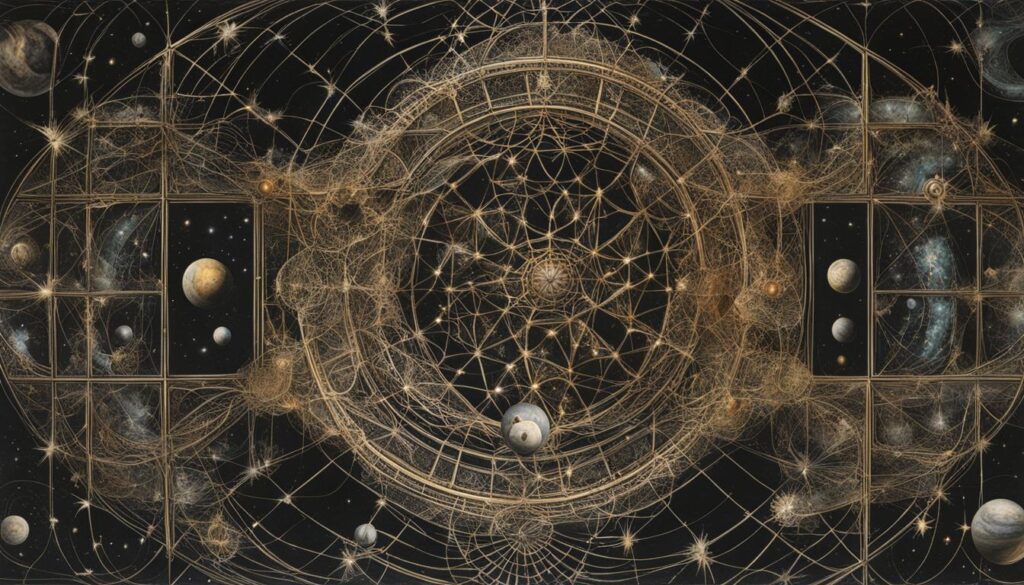
Exploring these detailed placements can offer invaluable insights into your life story. Whether you seek self-awareness, direction in love and relationships, or clarity on your career and ambitions, a thorough analysis of your astrological placements provides you with the keys to unlock a profound level of self-knowledge and empowerment.
Conclusion
As you have journeyed through the cosmic corridors, understanding placements in astrology may have transitioned from a curiosity to a profound tool for insight. The significance of placements in astrology is not merely in the allure of the stars, but in their capability to reflect the intricacies of your personal tapestry. Unpacking the astrology placement meanings allows you to peer into the profound dynamics of your character, empowering you with the knowledge to navigate life’s myriad paths with a more tuned compass.
Whether you seek harmony in relationships, clarity in your life’s direction, or a deeper sense of self, the intricate blueprint of your astrological placements holds key answers. By engaging with this powerful symbolic language, you create a dialogue with the universe, discovering how its celestial forces uniquely dance with your existence. This celestial guidance system offers more than predictions; it can serve as a mirror, revealing your hidden depths and untapped potentials.
As you apply this ancient wisdom to modern life challenges, it becomes evident that astrology is more than a mystical notion—it’s a living, breathing map that evolves with you. Embracing the significance of your astrological placements is akin to grasping a set of keys to unlock doors within your psyche and external life. Continue to explore, interpret, and grow with the stars, transforming this timeless knowledge into a vessel for personal evolution and enlightened decision-making.
FAQ
What exactly are ‘placements’ in astrology?
In astrology, ‘placements’ refer to the positions of the planets, the Sun, and the Moon within the twelve zodiac signs and houses at the time of an individual’s birth. These placements form an astrological birth chart, which outlines personality traits, potential life paths, and other personal characteristics.
Why are placements in astrology significant?
The significance of placements in astrology lies in their ability to provide insight into an individual’s deepest characteristics, emotional responses, and potentials. They are foundational in understanding one’s personal narrative as shaped by the celestial influences at the moment of birth.
How do the Sun, Moon, and Rising signs impact my astrological profile?
The Sun, Moon, and Rising signs, also known as the “Big Three,” play a substantial role in your personal astrology. Your Sun sign dictates your core identity, the Moon sign reveals your inner emotional landscape, and the Rising sign or Ascendant presents how you are perceived by others and how you initiate engagement with the world.
How can I identify my astrology birth chart placements?
You can identify your astrology birth chart placements by using online tools or applications such as Co-Star, which require your exact birth date, birth time, and location, to calculate your personalized chart.
What is the role of Mercury, Venus, and Mars in my birth chart?
Mercury influences your communication style and thinking patterns, Venus oversees matters of love, relationships, and values, while Mars governs your assertiveness, desires, and approach to challenges.
Can Jupiter, Saturn, Neptune, Uranus, and Pluto placements affect my life?
Absolutely. Jupiter influences expansion and personal growth, Saturn rules discipline and long-term achievements, and the transpersonal planets—Neptune, Uranus, and Pluto—govern broader themes like spirituality, innovation, and transformation, all of which impact your overarching life journey.
How do the elements and modalities affect astrological placements?
The elements—fire, earth, air, water—bestow energetic qualities to the signs, affecting temperament and disposition. Modalities—cardinal, fixed, mutable—shape how one deals with change and action. Both elements and modalities deepen the interpretation of individual astrological placements.
What are astrological aspects and degrees, and why are they important?
Astrological aspects are the angles planets form with one another, influencing the flow and integration of celestial energies. Degrees denote the positioning of planets within the zodiac signs and measure the progression of planetary influences, adding layers of meaning to the birth chart.
What insights can I gain from analyzing placements beyond just my zodiac sign?
By analyzing placements beyond your zodiac sign, you can uncover a nuanced understanding of your qualities, behavioral tendencies, and personal growth areas. This can include insights from the positions of all planets, as well as the Ascendant, Midheaven, and the lunar nodes, presenting a comprehensive view of your individual astrological makeup.
How might understanding my astrological placements influence my daily life?
Understanding your astrological placements can offer greater self-awareness, highlight areas for potential growth, and assist in navigating personal relationships and career choices. It’s a tool for introspection that can help you align with your strengths and address your challenges in a more informed way.

